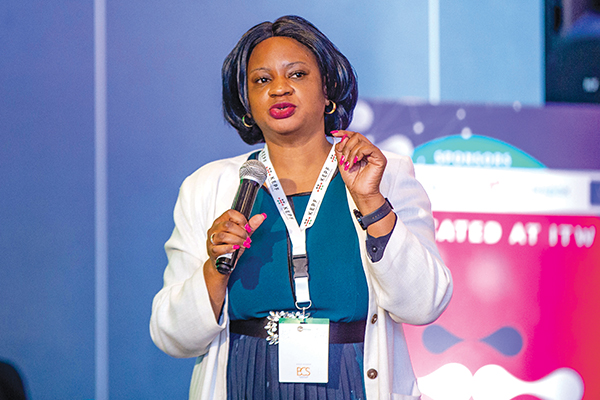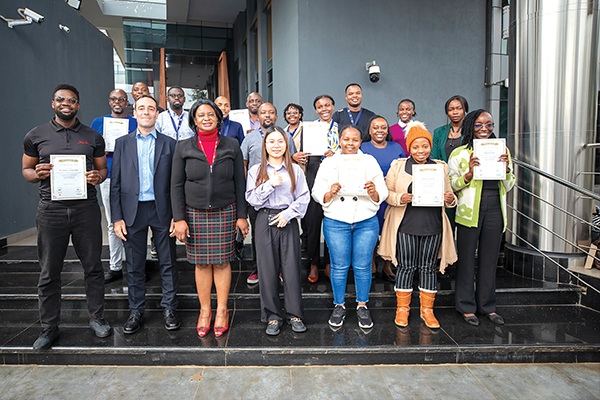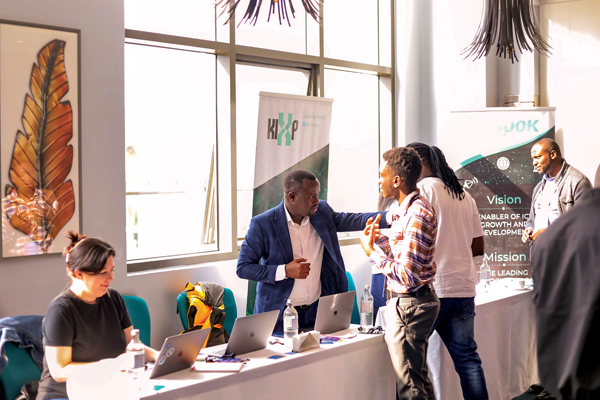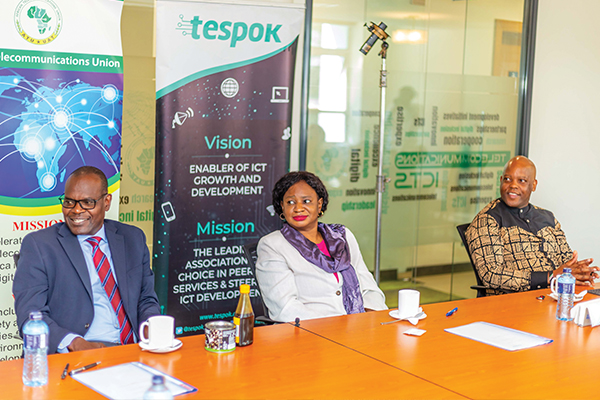#19
TESPOK
What sets corporations apart is not just their financial success but their ability to drive societal change, technological progress, and economic growth. They innovate relentlessly, redefine industries, and influence public discourse and policy. This is precisely what Technology Service Providers of Kenya (TESPOK) has been able to achieve over the years.
Founded in 1999 as a professional non-profit organisation representing the interests of Technology Service Providers in Kenya, TESPOK operates the Kenya Internet Exchange Point (KIXP), which helps keep local traffic local. TESPOK also runs the Industry Computer Security Incident Response Team (ICSIRT), providing early warning security alerts. More recently, TESPOK has initiated the African Union-funded MNO Global Roaming Exchange, which aims to reduce roaming costs for African mobile network users.
To achieve its objectives, TESPOK carries out several activities, including training programs that facilitate skills and knowledge sharing through various capacity-building initiatives. It operates ICISRT, which provides a comprehensive cybersecurity service with an early warning system to help organisations maintain their systems and network integrity, protecting data from cyber threats.
Policy discussions are another critical activity, engaging different levels of government to influence decisions that impact the business of TESPOK’s members, thereby supporting and protecting sector investor interests. These activities play a significant role in the growth and development of the technology ecosystem.

As a legislative advocate, TESPOK has been involved in drafting and amending various bills and policies to create a favourable business environment for its members and the industry at large. These efforts have included reviews of the Kenya Information and Communications Act, the Data Protection Act, the Critical Infrastructure Bill and policy, the Computer Misuse and Cybercrime Act, the Kenya Copyright Act, and the Finance Bill, among others.
TESPOK has been at the forefront of pushing for ICT infrastructure to be recognised as a utility and protected to facilitate its deployment by the private sector across the built environment, ensuring widespread access. The organisation has also advocated for the passage of the Critical Infrastructure Bill to address the challenges faced by ICT infrastructure owners in Kenya. Given Kenya’s status as a regional ICT hub, any disruptions in ICT infrastructure affect neighbouring landlocked countries such as Uganda, Southern Sudan, Rwanda, Burundi, the Democratic Republic of Congo, and Ethiopia.
TESPOK’s policy development process begins with a thorough assessment of the ICT landscape, involving regular consultations with member organisations to understand their challenges and needs. The organisation is active at both regional and global levels, monitoring global ICT trends and best practices to facilitate appropriate training and legislative updates within the local ecosystem. This requires TESPOK to undertake various research initiatives on emerging technologies and their potential impact on the local market. These studies not only benefit TESPOK and its members but also assist policy-making agencies in analysing existing market structures, related policies, and identifying areas for improvement. By staying informed on local and global developments, TESPOK ensures that its policy initiatives are relevant, timely, and aligned with industry needs.

One of TESPOK’s strengths lies in its ability to leverage strategic partnerships and collaborations with different agencies to address various issues. For example, during the construction of the Nairobi Expressway, TESPOK coordinated with government agencies to ensure prior communication from road engineers and contractors about the road works to avoid damaging infrastructure. This allowed members to secure their infrastructure before any road works took place, resulting in minimal internet disruption.
TESPOK collaborates with regulators such as the National Construction Authority (NCA), roads agencies, security agencies, and the Communications Authority of Kenya (CA) to ensure a coordinated effort in infrastructure development. CA has permitted TESPOK to self-regulate the ICT infrastructure colour-coding system, ensuring that every service provider has a unique colour and clear labelling of their infrastructure for easy identification.
TESPOK invests in its people by fostering a culture of continuous learning, diversity, and inclusivity. By attracting top talent and empowering employees, TESPOK has created a dynamic workforce that drives innovation and growth. Additionally, TESPOK offers master classes to C-level executives within the industry, particularly those new to the sector, to provide a clear understanding of its intricacies. These sessions are offered in-person or virtually in partnership with strategic capacity-building partners and key global personalities in the sector.
In November 2022, TESPOK organised Africa’s first Autism Half Marathon, contributing to its goal of becoming a socially responsible entity that transforms lives. The event raised funds and awareness for autism, with plans for a second edition this year.

TESPOK stands as a testament to the power of collaboration within a sector to influence legislative development and effective negotiation in driving technological advancement. Through its comprehensive and collaborative approach, TESPOK has been at the forefront of advocating for a digitally transformed country and has been working with the line ministry and private sector investors since 2013 to position Kenya as Africa’s digital hub.
TESPOK, through its management of the KIXP, provides shared infrastructure that serves the entire region. Global content distribution networks are hosted in the country’s data centres, supporting regional digital connectivity. These efforts, along with TESPOK’s initiatives in policy development, partnerships, and tackling future challenges, are crucial for Kenya’s advancement in the digital age.
By engaging in various activities, TESPOK has had a far-reaching impact, from aligning with global standards to fostering regional collaboration and driving local economic benefits. TESPOK has demonstrated its effectiveness in shaping a robust and inclusive ICT ecosystem.
Under the astute and visionary leadership of Chief Executive Officer (CEO) Fiona Asonga, TESPOK is committed to promoting technology growth and fostering innovation. This positions TESPOK to lead Kenya’s ICT sector into a future of sustained growth and technological advancement, solidifying its role as a key driver of the Silicon Savannah. TESPOK remains dedicated to its motto: Accelerating Technology Freedom.
















